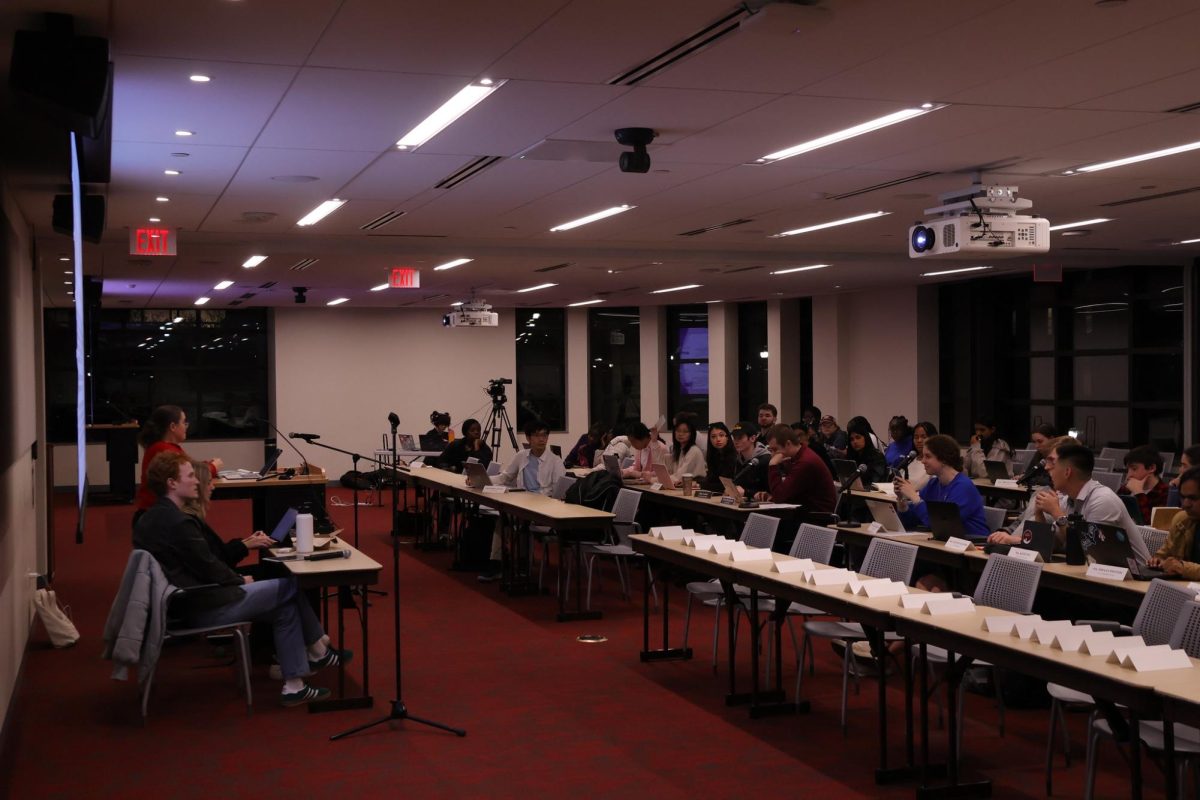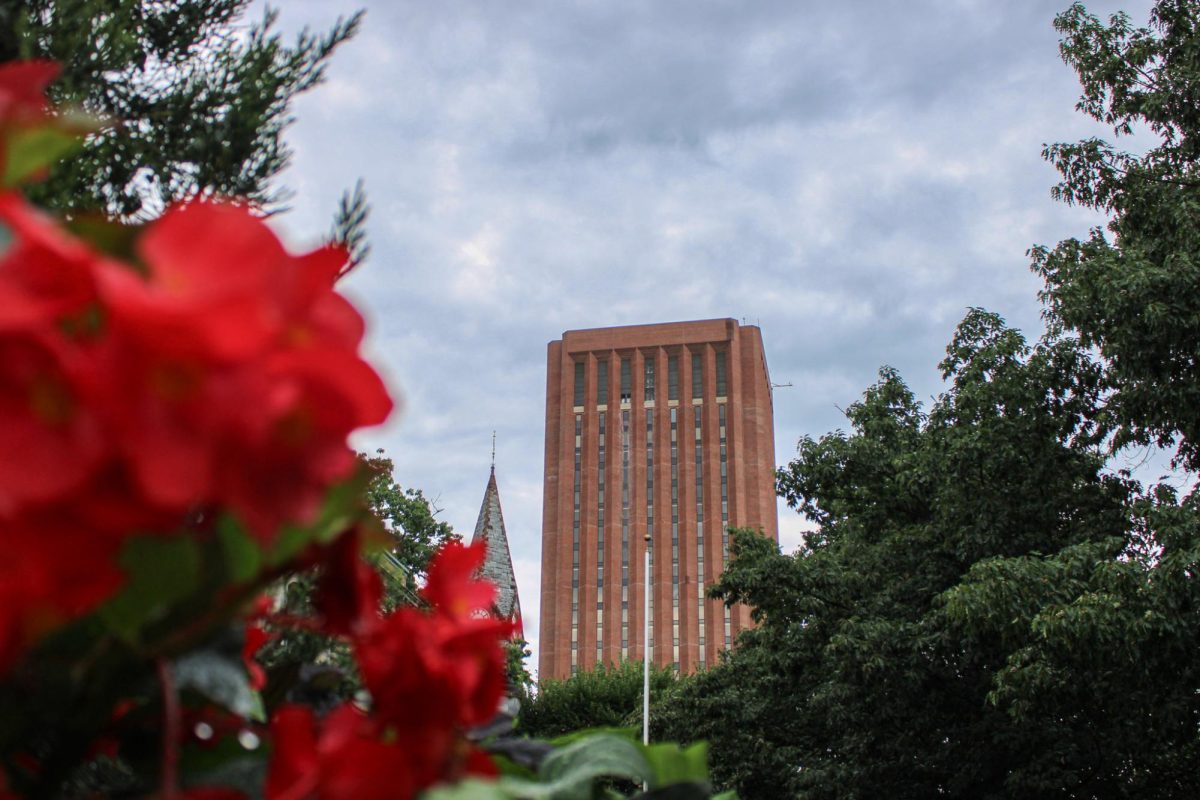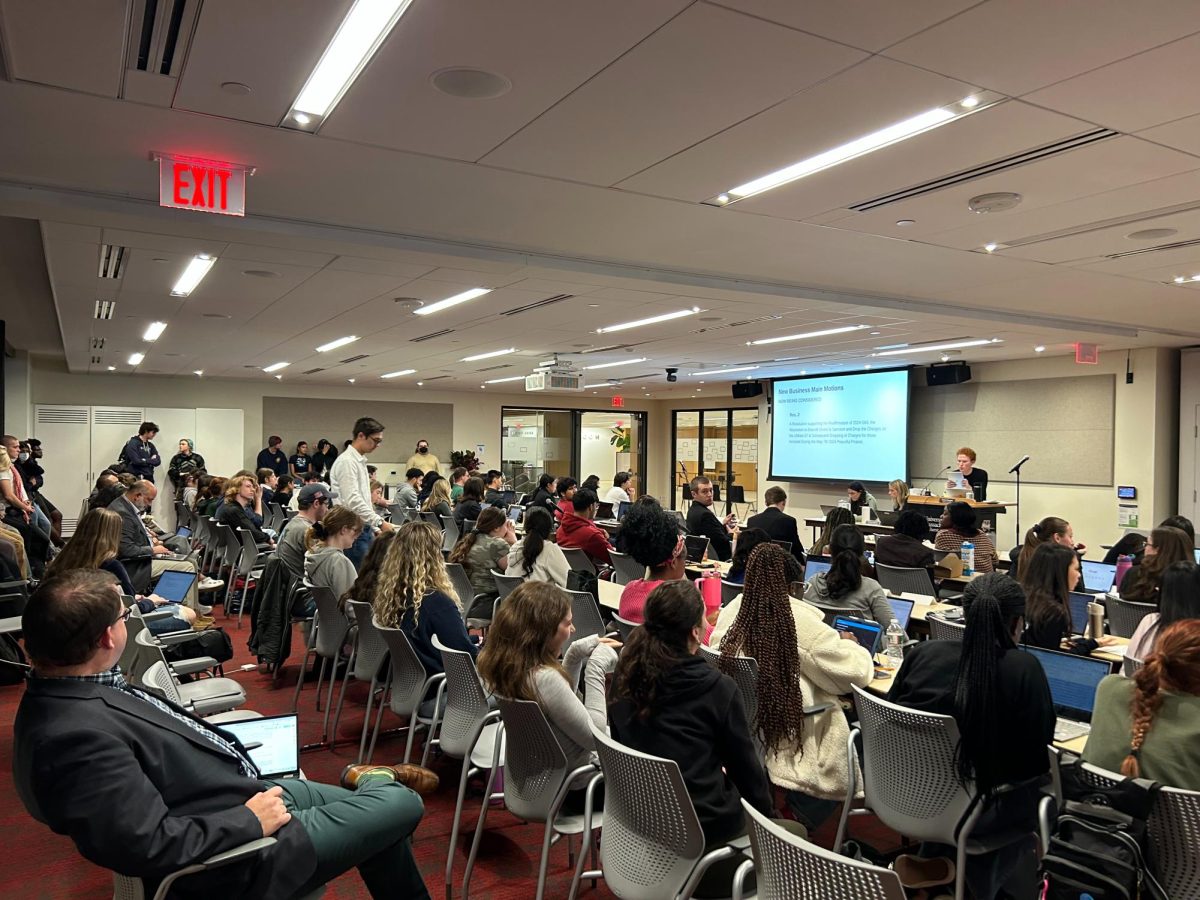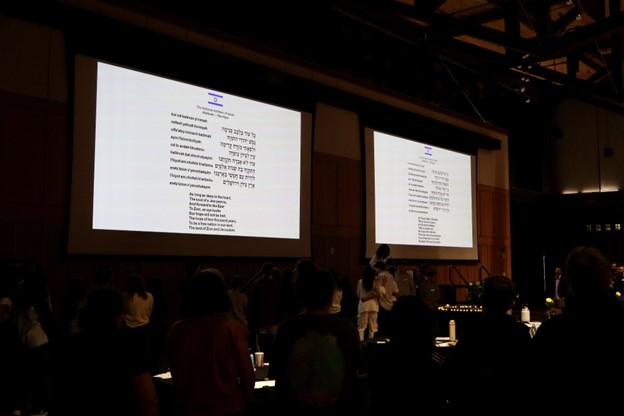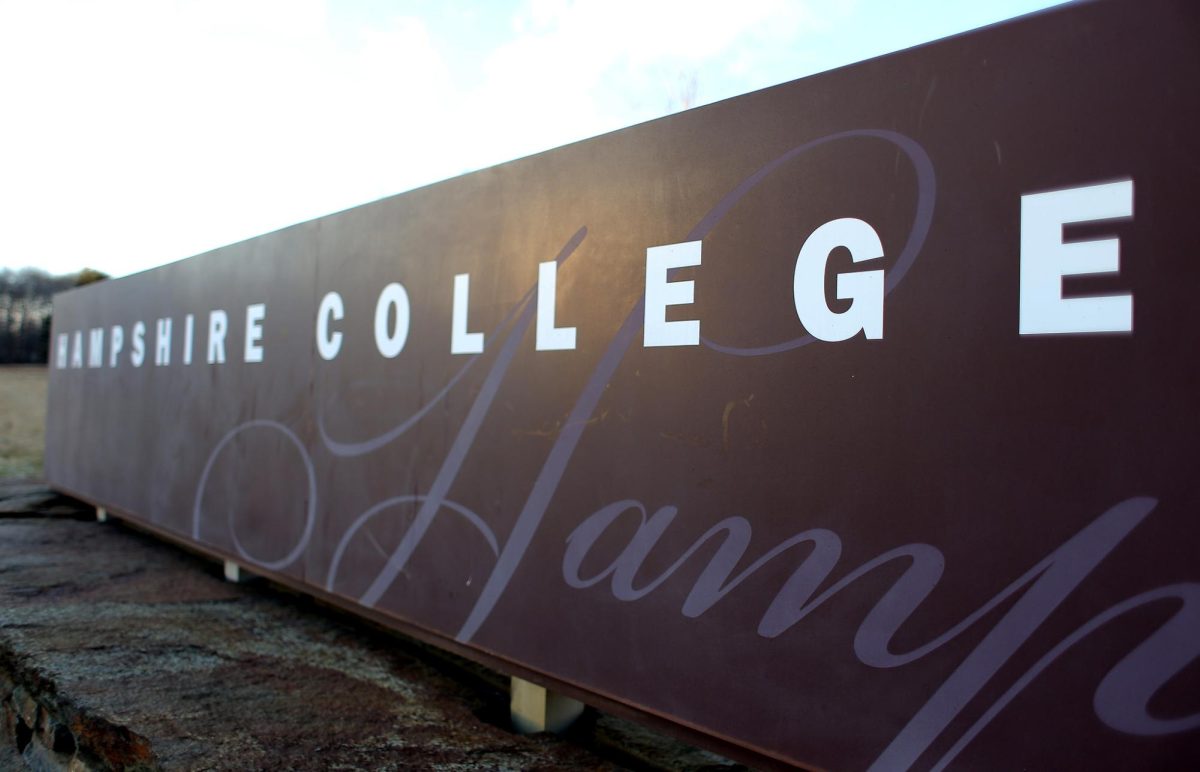On Monday, March 25, the University of Massachusetts’ Office of Equity & Inclusion hosted “An Evening with ALOK” in the Student Union Ballroom.
Alok Vaid-Menon, professionally known as ALOK, is a gender non-conforming writer, performance artist and public speaker whose work largely centers on advocating for LGBTQ+ rights and dismantling traditional gender norms in fashion.
Over the past 13 years, ALOK has spoken at a variety of locations throughout the Five College Consortium, but this event marked their first visit to UMass.
Prior to the main event, the Stonewall Center hosted an intimate dinner with ALOK and about 20 UMass and Five-College community members. During the dinner, students were able to introduce themselves to ALOK and ask questions about their journey as an openly queer artist and person of color.
“Every time I’ve seen [ALOK], like on TikTok or somewhere, I just think they’re one of the most brilliant minds of our generation,” Eryn Flynn, senior art history and English major, said. “And so I was floored UMass got them to come out, and I [was] so excited to listen to them.”
Stonewall Center Director Genny Beemyn introduced ALOK at the start of the event, where they reflected on their experience as one of the first nonbinary college administrators in the nation. Beemyn credited public figures such as ALOK for the rise in visibility and awareness of nonbinary identities.
ALOK began their show with a moment of silence to “acknowledge the reality of violence” against the trans community.
They described their performance as “weaving poetry with comedy,” switching between political satire about “being an ally” to the white, heterosexual community and emotional reflections on their grandfather’s death. Titling the performance “Biology,” ALOK focused on themes surrounding gender identity and the universal experience of death.
“Every time people tell us trans people that we can’t change our biology, I’m like, nice haircut,” ALOK explained. “I love biology precisely because it’s constantly changing, and I have commitment issues. Biology is the study of life, and when you spend so much time having people threaten your life, you begin to wonder why this thing is worth fighting for. And the true biological truth that’s being erased in society isn’t gender — it’s that we die.”
The performance also explored common themes in ALOK’s greater body of work, such as gender expression through fashion. “Apparently, in your culture, you’re not supposed to appear naked in public, but you’re supposed to dress in a way that broadcasts your genitals to complete strangers,” they quipped.
ALOK concluded their performance with a speech addressing transphobia, saying “Trans people teach the crucial distinction between living and merely existing, and it is easier to kill us than to confront the fact that you are already dead. Trans people teach that heaven is a practice, not a promise where you are promised that… if you just looked like what a woman was supposed to look like, that if you just acted like what a man was supposed to act like, then you would be loved… I was taught growing up that love meant I had to betray myself in order to make other people more comfortable. What I’m learning is that love means I get to become myself even if it makes other people uncomfortable.”
A short Q&A session and book signing of ALOK’S 2020 publication “Beyond the Gender Binary” followed afterwards.
Allison Duseau, a senior social work major at the University of New Hampshire explained, “I’m trans and have been a fan of ALOK for so long, and they just make me proud to be trans and make me feel really safe.”
Duseau added that their favorite part of the show was ALOK’s commitment to demanding respect regardless of whether others understand their identity.
“Rather than identifying yourself in the sense where people need to understand you… just loving each other,” Duseau said. “And rather than being like, ‘Oh, I’m Allison, I’m a trans person,’ being like, ‘I’m human.’”
Annika Singh can be reached at [email protected].








